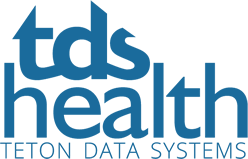Telephone Triage for Oncology Nurses

Description
Healthcare improvements have shifted cancer care from inpatient to outpatient settings. This change in healthcare delivery presents new challenges for professional nurses familiar only with the traditional inpatient model. As healthcare trends away from the hospital, telephone triage has become an essential tool for indirect patient care. The third edition of Telephone Triage for Oncology Nurses gives an updated look at this process, including new insights into patient care needs that result from newer cancer treatments, such as targeted and immunotherapies, as well as how updated technologies, including smartphones and Internet communication platforms, have enhanced patient assessment. With new chapters on nursing management of oral therapies and updated protocols using the latest policies and evidence-based practice, nurses of all experience levels can use this book as an essential resource for learning the telephone nursing role.
Doody's Reviews
Quotes, Reviews or Testimonials
"As more oncology patients are treated in ambulatory settings, this book of telephone triage protocols promotes patient safety while ensuring nurses work at the top of their licenses. The targeted approach to oncology care supports nurses of all levels of clinical experience in addressing the unique needs of oncology patients that differ from those of non-cancer patients with similar complaints. The third edition is a necessary update that introduces triage RNs to new cancer treatments."
-- Molly Moran, MSN, RN, CCRN (Rush University Medical Center) Doody's Review
Audience
The audience is registered nurses of any experience level who work in oncology. Some understanding of the patient's disease process, medication, and symptoms are necessary, but the protocols are built for both the most novice and the most experienced oncology nurses to use. By breaking down the various symptoms that patients may call about (alopecia, anxiety, fever with neutropenia, dry mouth, etc.), these protocols enable nurses to perform an assessment, make a plan of care with specific interventions, and set expectations for evaluation.



